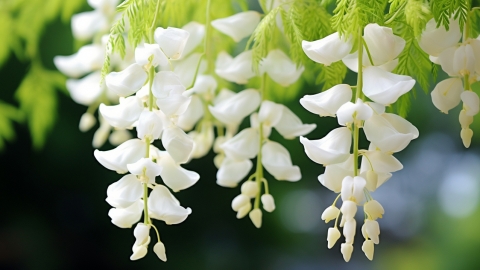Who should not eat locust flowers?
Generally speaking, there is no strict restriction on who cannot eat locust blossoms. However, individuals with allergic constitutions, those suffering from spleen and stomach deficiency-cold, patients with diabetes, pregnant women, and post-operative patients may experience adverse reactions after consuming locust blossoms, and the effects can vary from person to person. If any abnormalities occur, prompt medical attention is recommended. Detailed explanations are as follows:

1. Individuals with allergic constitutions: Locust blossoms may trigger allergic reactions such as skin itching, swelling, or difficulty breathing. This population may easily experience discomfort after consumption, and in severe cases, medical treatment may be necessary.
2. Individuals with spleen and stomach deficiency-cold: Locust blossoms are relatively cool in nature and may exacerbate symptoms of spleen and stomach deficiency-cold, such as abdominal pain, diarrhea, or indigestion. These individuals may experience gastrointestinal discomfort after consumption, affecting normal eating habits and daily life.
3. Diabetic patients: Locust blossoms contain a certain amount of sugar, which may negatively affect blood glucose control. Consumption by diabetic patients may lead to fluctuations in blood sugar levels, which is not conducive to stable disease management.
4. Pregnant women: The body during pregnancy is relatively sensitive, and locust blossoms may irritate the gastrointestinal tract or trigger allergic reactions, affecting maternal health. In addition, excessive consumption may pose risks to the fetus.
5. Post-operative patients: The body is relatively weak after surgery, and the cooling nature of locust blossoms may delay wound healing or cause gastrointestinal discomfort. This population should choose warming and nourishing foods to promote quicker recovery.
In addition, locust blossoms are edible only when harvested during the blooming period. Healthy, disease- and pest-free blossoms should be selected during harvesting, and blossoms treated with pesticides or fertilizers beforehand should be avoided to ensure safety. Before consumption, locust blossoms should be thoroughly washed, and the stamens and sepals removed, with only the petals being eaten.








